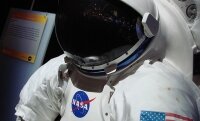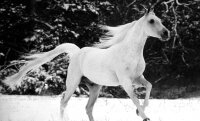Greta Aart Speaks w/ Tim Butcher
While working on a book review for the award-winning non-fiction Blood River, I contacted Tim Butcher. He responded with much positive enthusiasm: “I am delighted when anyone is happy to discuss the heartbreak of the Congo.”
Tim Butcher is indeed no ordinary journalist. He has made a career of writing from awkward places at awkward times. Born in 1967, he spent his childhood in the British Midlands. After a year of climbing mountains in New Zealand, he read politics, philosophy and economics, earning a degree from Magdalen College, Oxford. Since 1991, he has worked for The Daily Telegraph, covering crises from the Balkan wars of the 1990s, to the allied invasion of Iraq in 2003 and Israel’s 2006 struggle with Hezbollah in Lebanon. Currently, he works as the paper’s Middle East Correspondent based in Jerusalem. He and his partner, Jane, have a toddler, Kit, an infant, Tess, and a Jack Russell, Betty.
Blood River is Butcher’s first book. Finalist for the Samuel Johnson Prize and runner-up of the British Book Awards, it narrates his harrowing six-weeks’ experience of crossing the Congo River. It is forthcoming in the USA this October from Grove Press.
§
As you were writing Blood River (U.K.: Chatto & Windus, 2007), what was most difficult to you?
Blood River was my first experience of writing a book. While I ultimately found the process rewarding, it was not without difficulties. I write for a living. For eighteen years I have worked as a reporter. So the idea of producing a 100,000 word manuscript did not daunt me if only because at first glance it represented a hundred news stories, each of 1,000 words.
My presumption could not have been more clumsy. For the book to work, it could not be just a bolting together of lumps of text, no matter how individually interesting they might be. There had to be a theme, a sense of direction and, most crucially, a voice or tone for the narrative.
My single biggest problem was finding that voice. It took months to settle on the correct tone for Blood River. I wanted it to be accessible, but my first drafts were too chatty, too whimsical. Then I over-corrected and became too austere, academic and haughty.
It was agony flailing around without the right voice. Most writers will tell you that they ‘know’ when something is working and when it is not working. So I would push on through a day, struggling to produce a thousand words or so and yet at day’s end, I knew in my heart they were unusable.
The agony only ended when I found my voice. From then on the book really started.
The work of memory is after all extremely complex. Did you remember details differently when writing down all the happenings of those six weeks, after having experienced them first-hand?
In terms of working from memory, I had taken contemporaneous notes of scenes and conversations and events throughout my time in the Congo. I back myself to be accurate. The challenge is to fit those objective observations into a more subjective narrative you settle on later.
What was most important to you during your writing process?
Conviction. Without a sense of conviction, a sense that I believed in the Congo and my journey as a subject, I would have curled up and hidden in a corner. It is such a long, denuding process, writing a book, that there can be no scintilla of doubt in the author’s mind. I had some wobbly moments in the writing but the bottom line remains thatI find the heartbreak of the Congo the most fascinating, tantalizing, extraordinary human drama.
What struck me most when I read Blood River was your honesty (or truthfulness, since there’s in fact a fine line between being honest and being truthful), as a writer. How did you maintain the equilibrium, particularly when you were also overwhelmed by what you saw and experienced? You seemed to be seeking some vérité (truth), something personal, in spite of the fact that your ‘ordeal voyage’ may appear as surreal.
As a reporter, I have always prided myself on honesty. Other writers might push the envelope of truthfulness, implying this or insinuating that. But I have always believed human drama has its greatest impact when unadulterated by innuendo or interpretation. What I set out to do with Blood River was to describe honestly and faithfully the reality of the Congo today, a place where 1,500 souls can perish each day only for the rest of the world to walk on by. But my premise was to play it straight, let the reality speak for itself no matter how much I was moved by the suffering and the tragedy.
I was looking not so much for answers as for essential truth. Africa and the developing world generate problems that outsiders have struggled with for a long time. Any attempt by me to come up with a ‘solution’ would have been judgmental and simplistic. I wanted to give readers the tools to make up their own minds, not to herd them down a particular ideological path.
In a way, it is rather simplistic and too hasty to generalize you as following in the footsteps of H. M. Stanley. The fact remains that it is a different Africa, and a different journey (i.e. your journey). Were you at any point ‘worried’ that this comparison to Stanley’s 1874 exploration would ‘water down’ the spirit of your book, and most importantly, the path you had traveled?
I have never been comfortable at describing what I did in the Congo as following the footsteps of Stanley. This implies some sort of attempt to recreate what he did, some sort of tribute to him and his methods, some sort of reconstruction.
My intention was very different. I wanted to try to understand a very troubled place by comparing its reality today with what the first outsider described seeing there some time ago. Stanley left a diary and a published book. Countless other books have been written about Stanley. This gave me a reference point (not necessarily reliable or accurate but the best in the circumstances) from which to try to plot the development both of the Congo and Africa.
Publishers look for ‘tags’ for books and one they came up with was `in the footsteps of Stanley’ as if I put on a Victorian explorer’s helmet and tried to emulate Stanley in some strange reverential way. I hate this sloppy categorisation.
The book can be categorised in a number of ways: travel writing; political writing; history writing; personal odyssey. I have been into bookshops and found Blood River in a variety of sections including travel and politics and, even, misery memoirs.
The problem arises as publishers try to categorise the uncategorisable. They want a tag that can be easily communicated, a sound-bite if you like. As an author who is proud of working at different levels, such a process is simplistic and frustrating.
When you were in the midst of your travels, were you already formulating the narrative voice or the narrative self that would subsequently become the ‘I’ of the book?
No. It is true that this journey did end up as the base for a book. But when I started out I had no certainty and, indeed, no great confidence it would be worth a book.
When I set out from Lake Tanganyika I honestly thought the journey would end in a failure after just a few days.
So many people had told me it was impossible.
My energies were focused on surviving and getting through. I kept notes more as a diary than as the skeleton of a book. I thought I might be able to do some modest journalism about the trip even if it failed after a few days.
I had no book deal with a publisher and no agent. All of that took a long time to arrange once I had surprised myself by crossing the Congo.
I only started to really look for the voice after I got the agent as we worked together on the book proposal. As I mentioned earlier, this was not an easy time at all.
Can this book, at any level, receive a platform in Africa?
It might receive a platform in Africa but only in those relatively few places where such issues are addressed (universities and countries with strong civil society institutions). In the Congo the state education system has largely collapsed and there is precious little of this type of analysis. But in South Africa or Nigeria or countries with flourishing academic circles, the book might receive a platform.
Blood River does, after all, raise the question of `why are Africans so bad at governing Africa?’ The question is provocative and wide-ranging but until a decent answer is found tragedies like the Congo will continue.
Overall, Blood River raises more questions than answers. Was that intentional? Were you aware?
My intention was, as explained above, to strip a complicated, challenging issue like the Congo to its bare components, to describe its reality, its background and its context and thereby to give readers the tools to start forming their own answers. I did not aim to come up with my versions of answers for everything but to at least allow people the understanding to start forming their own.
Are there plans for having the book translated into other languages?
It is being translated into German, Italian, Dutch, Portuguese and Hebrew. My agent is talking to a French publisher, but so far no firm commitment (a personal disappointment, as I had hoped to reach the Francophone readership in Belgium).
As I was reading Blood River, I became increasingly aware of the paradox: how one may read all that you wrote just for pleasure, and how the Congo that you cared and wrote about —even at the extent of risking your life—has in some ways deflated. It is now commodified and sold as a book. Did you face skepticism from those who, at first glance, viewed the book as merely ‘exotic writing’?
‘Adventure’ does sell, and I was aware part of the attraction of Blood River would be for people interested in the adventure market. If some people bought Blood River because of the adventure, then fine as long as I got the message out there about this amazing place with a tortured history and even more tortured present.
But, to repeat something I have already said, I wanted Blood River to be honest. Books on adventure travel are often far from honest. The main character is, often, surrounded by a western film crew for the television tie-in, with creature comforts very different from the subjects they are interacting with. Tied up by health and safety rules from their publisher/broadcaster they are not really taking any risks at all.
I wanted to be utterly truthful: to explain that life in the Congo is an adventure, a tough, no-nonsense matter of survival every day. But I did not want to pretend I had been more adventurous than I really had been. I made no attempt to conceal I left the river descent at Mbandaka and took a UN helicopter. The real adventurers of the Congo are those who win the daily survival battle there.
How about related activities to help people move beyond simply buying or reading the book, and towards approaching the African realities you’ve depicted more constructively?
I remain committed to the Congo. I write articles about it constantly, and have recently contributed something to Breaking The Silence, a lobby group that wants to raise awareness of the Congo with a week of activities in this October. I am also seeking to collaborate with another campaign, Raise Hope for Congo.
Why do you think the Occidental world today still fails to understand central Africa?
Largely because of prejudice and ignorance. Mutual understanding and frank exchanges of advice would help.
Excerpt reprinted with permission of author…
WITHIN MOMENTS of leaving Ubundu we entered full rainforest. There were trees so high I could not make out any detail of the leaf canopy hundreds of feet over my head. Some of the trunks were pleated into great sinews that plunged into the earth, as massive and solid as flying buttresses on a Gothic cathedral. And high above my head but beneath the gloomy leaf canopy I could make out boughs as square and broad as steel girders. The advancing jungle had choked the old road to a single-track footpath, snaking around mature trees growing up from the centre of the old carriageway and past vast mudslides and dramatic rockfalls. Bridges had been washed away making us pick our way down to the bottom of water courses and then charge up the other side. Recent rains made the whole exercise a dirty and dangerous one as the motorbikes slithered in the glutinous mud, time and again, pitching me onto the deck….
Suddenly, our convoy stopped. One of the bikes needed refueling, or one of the riders had taken a tumble, I don’t remember. But what I do recall was the sense of Africa at its most brooding. The engines had been switched off and the silence was absolute. There was no birdsong, no screech of monkeys. Everything edible had long since been shot or trapped for the pot by local villagers, and the thick canopy way above our heads insulated us from any sounds of wind swishing branches or rustling leaves.
–
Greta Aart is a former editor for Emprise Review







